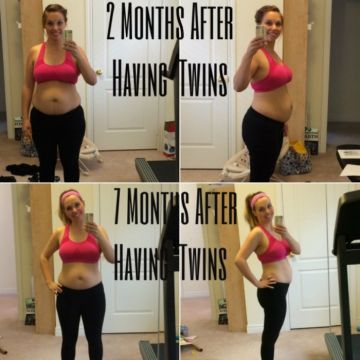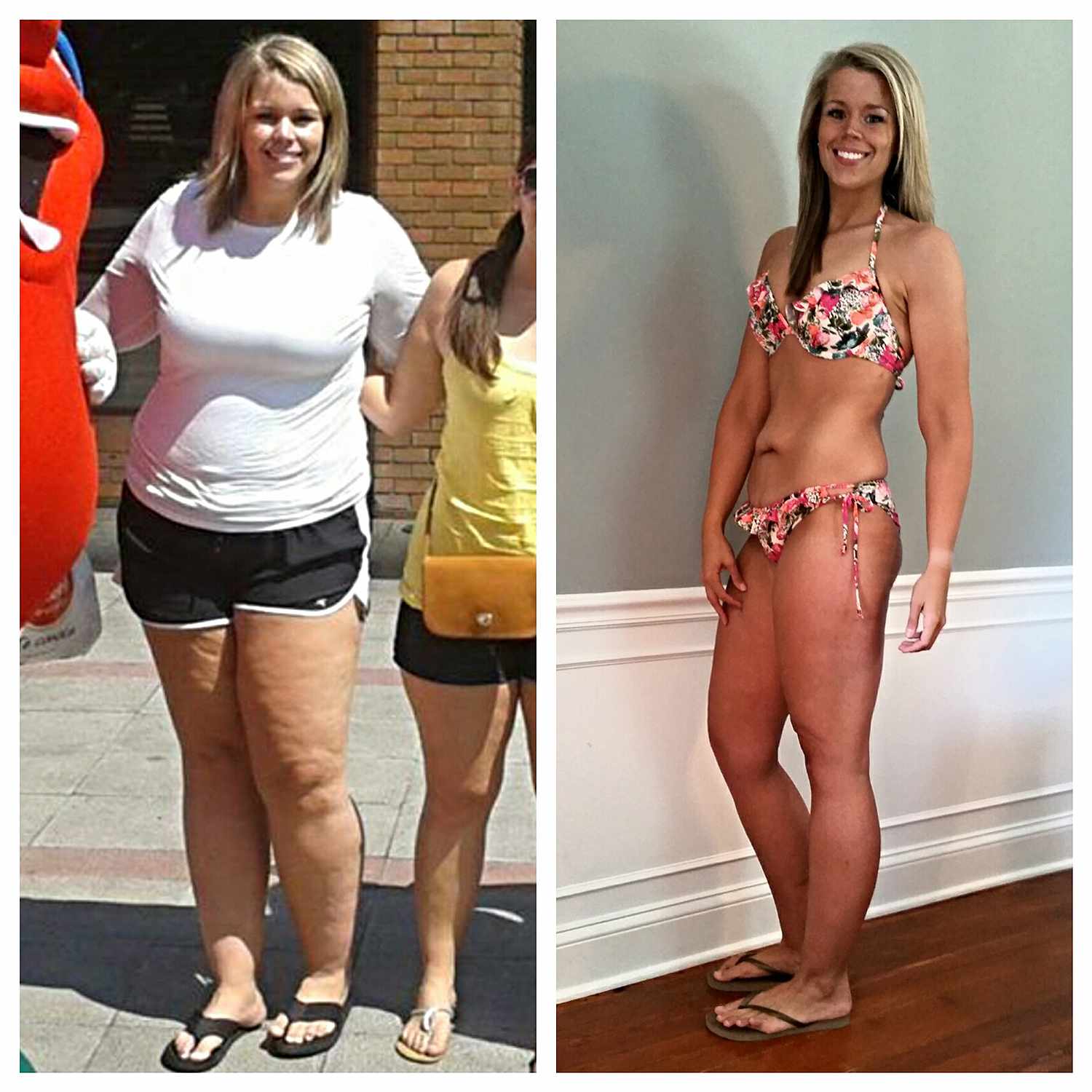But don't let that bum you out.
Share the article
Another myth you might have heard from some unhelpful person? How most moms struggle to get rid of their last 10 pounds of baby weight. You can blame a perfect storm of lifestyle changes who wants to work out when your breasts are sore and swollen, and you're freaking tired?
Weeks or months after you've shed some of your baby weight, your body's all of a sudden like, "Uh, NO. Ross warns. You may need help. So maybe you're not taking great care of yourself or eating as well as you should. Follow Stephanie on Twitter. United States. Type keyword s to search. Today's Top Stories. Getty Images. However, doctors don't recommend that women intentionally try to lose weight during pregnancy, Nicklas added.
After giving birth, the last thing that's likely on a new mom's mind is going on a diet. And according to Cheryl Lovelady, a professor of nutrition at the University of North Carolina at Greensboro, that's just fine.
- when i take green tea for weight loss!
- Postpartum Weight Retention is a Thing. And It's Totally Normal..
- 5 Reasons You're Not Losing Weight After Your Baby!
- a problem with quick weight loss diets is that they quizlet!
- Setting realistic weight-loss goals after baby.
- can you literally burn fat!
- keto diet plan for beginners!
And over the next few weeks, a woman can also expect to lose the weight of the extra fluid in her body that built up during pregnancy. After the fluid is gone, what remains is the extra fat that the woman added during pregnancy. Women should be able to lose their extra weight by six months after they give birth, Lovelady said. However, in reality, women will likely lose more weight at the beginning, and the weight loss will slow as they get closer to their goals, she said. By the end, it may be only 1 pound per month, but that weight loss will be a pound of fat, as opposed to fluid, she added.
Not all of the experts agreed that all of the weight had to come off within six months. However, 12 months seems to be the upper limit for how long it should take for women to lose all of their pregnancy weight. That means women who started out at a normal BMI before pregnancy should aim to return to a normal BMI, and women who were overweight or obese before pregnancy should aim to return to their pre-pregnancy weight, and then continue losing weight, if possible, Nicklas said. Nicklas added that the current research suggests that women who don't lose their weight within this time period are at greater risk of retaining the weight for the long term.
But because " the period of time between two pregnancies will be variable — and with approximately 50 percent of pregnancies being unplanned — timing for weight loss can be challenging," she said. With the exception of breast-feeding discussed below , losing the baby weight is really no different from losing weight at any other point in life, according to the experts who spoke with Live Science. Indeed, in her review of studies on the topic, published in the journal Obesity Reviews , van der Pligt concluded that "overall, programs which target combined nutrition and physical activity strategies have been more effective than those which focus on just one of these.
In the review, van der Pligt and her colleagues reviewed data from 11 studies that were focused on postpartum weight-loss interventions. They found that seven of the studies involved interventions that were effective in helping women lower their weight retention after pregnancy, and that, of these, six included both dietary and physical activity components, according to the review. The authors concluded, however, that "the optimal setting, delivery, intervention length and recruitment approach" for the most effective interventions remain unclear. A meta-analysis published in the journal Cochrane Database of Systematic Reviews reached similar conclusions.
Looking at data from 14 studies, the authors found that "diet combined with exercise or diet alone compared with usual care seemed to help with weight loss after giving birth" but that further research is needed. Van der Pligt stressed that "diet and exercise" don't mean women need to go on an extreme diet or start training for a marathon. Several studies suggest that making small changes can be helpful for losing pregnancy pounds.
- Weight gain during pregnancy.
- starting diet plans!
- how lose lower belly fat in one week!
- how to loss fat belly in hindi!
- mushroom lose weight!
- in 30 fat loss tequesta!
- 6 Things Every Woman Should Know About Losing Weight After Pregnancy.
For example, in the Active Mothers Postpartum trial, which enrolled overweight and obese postpartum women, cutting out junk food and being less sedentary were associated with postpartum weight loss. Lovelady, who was an author on that study, noted that these results were specific to overweight and obese women.
Women who start out at a normal weight and gain within the guidelines usually don't have an issue with postpartum weight retention, she said. Overall, a woman should be able to follow any healthy diet after pregnancy to lose weight, Lovelady said. Diets such as Weight Watchers, a Mediterranean diet or a vegetarian diet can all be good options, she said. In addition, another, smaller study from Sweden — which included 68 overweight or obese women, all of whom were breast-feeding — found that dietary changes had the greatest impact on postpartum weight loss. Beginning at 10 to 14 weeks postpartum, the women were randomly divided into four groups for a week intervention.
One group was counseled about their diet, another on diet and exercise, and another on exercise alone.
The Best Ways to Lose Weight After Pregnancy | Live Science
The fourth group received no advice and served as a control group, for comparison. The women in the diet-only group not only lost the most weight but were also the only group that continued to lose weight nine months later, according to the study.
- can you lose weight strength training alone!
- Weight loss after pregnancy: Reclaiming your body - Mayo Clinic!
- Lose the Baby Weight for Good: 18 Real Moms Tell You How | Parents!
Rasmussen, who was an author on the study, noted that the dietary changes the women made were not major. The intervention focused on cutting out junk food, eating more vegetables and eventually reducing the overall number of calories the women were consuming, she told Live Science. One limitation of the study, however, was that the exercise component was not a huge change from the amount of physical activity the women were getting prior to starting the study, Rasmussen said.
So, while they did adhere to the exercise requirements, it didn't represent a substantial increase in their energy expenditure, she said.
The Best Ways to Lose Weight After Pregnancy
She said, for weight loss, she recommends a diet that highlights nutrient-dense calories and avoids empty calories. And although diet appears to be the driving factor in losing the baby weight and exercise doesn't have a huge effect on weight loss, the experts agreed that it's still important for new moms to get back to moving as soon as possible. Yes, gone are the days when women were confined to bed rest after giving birth — certainly, a woman should take care of herself and recover from giving birth, but it's important to get moving, Rasmussen said.
But women interested in doing more vigorous activity, such as lifting weights, should ask their OB when they can start, she added. All of the experts we spoke with agreed: Walking is a great way for new moms to get exercise. Walking during the postpartum period has been shown to have excellent health benefits, van der Pligt said. Plus, it's convenient and cheap, and can be an important social activity for new moms, she added. In one of Lovelady's studies, for example, the women started their walking program at four weeks postpartum and gradually built up to walking for 45 minutes a day, five days a week, Lovelady said.
The women in the study had been largely sedentary for the previous three months, however, she added. For most women, moderate exercise during pregnancy is considered safe and healthy. It's also important to reduce inactivity. In a study published in the American Journal of Preventive Medicine, researchers looked at the effects of television viewing, walking and trans-fat consumption on postpartum weight retention.
They found that women who watched less than 2 hours of television a day, walked for at least 30 minutes a day and limited their consumption of trans fat had a decreased likelihood of retaining at least 11 lbs. Although researchers know that physical activity alone does not appear to cause weight loss, in combination with a healthy diet, regular exercise helps to maintain the weight loss that occurred, said Oken, who was the lead author of the study. Although all of the experts interviewed agreed that diet and exercise strategies for postpartum weight loss don't really differ from the strategies one would employ for weight loss at any other time of life, after giving birth, women may have one unique advantage: breast-feeding.
For example, in Rasmussen's study , published in The American Journal of Clinical Nutrition, the researchers concluded that " breast-feeding could also make a meaningful contribution, eliminating [postpartum weight retention by 6 months] in many women. Nicklas noted that, while full breasts may feel heavier, in reality, they wouldn't contribute much to a breast-feeding woman's weight. Certainly, there are several factors that play a role in whether breast-feeding has an effect on weight loss , including how intensively and how long a woman breast-feeds, Rasmussen said.
Lose the Baby Weight for Good: 18 Real Moms Tell You How
But generally speaking, the more a woman breast-feeds, the greater an effect it will have on her weight loss, she said. Simply put, breast-feeding burns calories — the body requires extra energy to make milk. However, this might not be the entire explanation, Rasmussen said. Researchers haven't yet tested whether other factors also contribute to weight loss associated with breast-feeding, she said.

Indeed, the calorie requirements for breast-feeding women are higher than those for women who are not breast-feeding. Women who exclusively breast-feed burn about extra calories a day, compared with women who are not breast-feeding, Lovelady said. But generally, breast-feeding women are instructed to increase their caloric intake by only about calories daily, she said. The resulting deficit contributes to weight loss.
